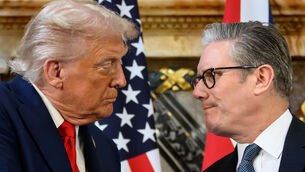One TV station offers real choice while another is gifted your money
The media industry is suffering from a major advertising downturn and television is bearing the brunt of it. Television is not delivering the mass audiences of the past to justify the prices charged for advertising because of the alternatives available and the dilution caused by the multiplicity of stations available to many people.
Television remains very expensive to make, so many broadcasters are suffering from the sudden mismatch between revenues and costs. The simple answer is to make less expensive programmes — or just import cheap replacements — but this can be counterproductive too: Irish audiences want to see Irish-made programmes on their Irish stations.














